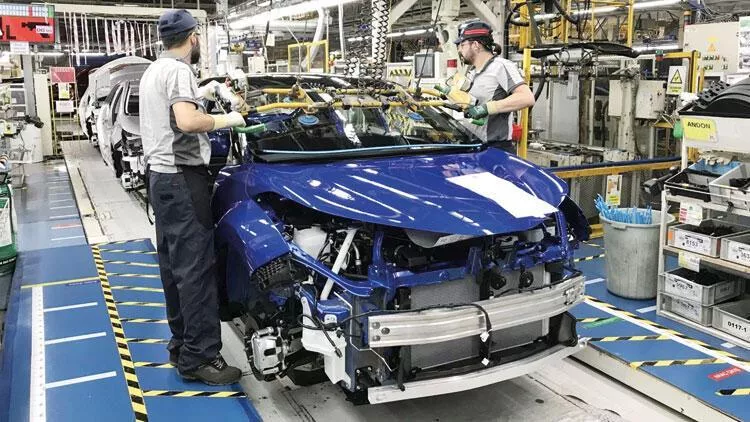The recession is threatening Europes auto makers and their supply chains. With the war in Ukraine and the sanctions against Russia affecting exports of German cars to other countries, the outlook for European light vehicle production is not good.
Production forecasts for European light vehicles have been slashed to 17.0 million
A new report from the S&P Global Mobility (a subsidiary of Standard & Poor’s) indicates that Europe has seen its light vehicle production slash by 1.7 million units this year, to 17.0 million. According to the company’s senior analyst, Matt Johnson, the 1.7 million figure is a significant drop in the bucket compared to the tens of millions of vehicles that were built in the region in the last decade. Despite a relatively sluggish start, S&P forecasts an increase of 2.5 million cars in the US in 2019. It’s expected that global sales of electric and hybrid vehicles will top 3 million units in 2020. That number could climb to 6 million or so in the coming years.
In the grand scheme of things, S&P says there’s no silver bullet for improving European economies, but it does suggest that the Fed may have to cut back on its fixed investment plans. The auto industry is in a state of flux, and manufacturers like Toyota, Volkswagen and Daimler are scrambling to find new ways to make their trucks and SUVs greener and sexier. One solution may be to make vehicles more fuel efficient by employing advanced technologies, like e-drive.
Automotive supply chains are under pressure from economic sanctions
The automotive supply chain is under increasing pressure, largely because of economic sanctions imposed on Russia. These measures are aimed at stopping the Russian government from nationalizing automobile industries. But the effects will be felt not only in Europe but throughout the international trade of cars.
Among the key challenges is the inability to provide adequate amounts of raw materials for automotive production. In addition, transportation bottlenecks and the increasing cost of raw materials have created shortages of commodities that are used in the manufacturing of cars.
There is also a threat of cyber-security breaches that could lead to disruption in production and logistics. Companies will have to devise a new balance between just-in-time production and streamlined supply chains.
Automotive companies are increasingly focusing on local suppliers, shifting production away from China, a country that is often cited as a source of supply difficulties. However, a number of international suppliers still have facilities in Ukraine.
As war escalates, the European Automobile Manufacturers Association and Confederation of European Business (CEB) are calling on EU and U.S. leaders to impose sanctions on Russia.
War in Ukraine is Europe’s largest tragedy and humanitarian crisis since World War II
There is a growing global concern for the humanitarian crisis in Ukraine. With over 3 million people displaced, most of them women and children, the situation is grave. The invasion by the Russian Federation is a devastating blow to the Ukrainian population.
Since the start of the war, an estimated 2 million refugees have fled the country. A further 4 million could flee, and the UN estimates that about 10 percent of the country’s population will be forcibly displaced.
Over a month into the conflict, 352 civilians have been killed. Several thousand people have been injured.
The ongoing war has damaged vital civilian infrastructure, including water and gas pipelines. Children in these areas are particularly vulnerable to bombing, landmines, and unexploded ordnance.
The Russian invasion of Ukraine has devastated the economy and affected food and energy security. As the conflict unfolds, it is likely to exacerbate fears about nuclear events.
There are also significant impacts on the environment, including deforestation and soil degradation. There is also a risk of outbreaks of cholera, poliomyelitis, and diphtheria.
German exports are competitive in other countries
Despite the recent recession, German exports are still competitive in other countries. In fact, Germany is one of the strongest economies in the EU. A large part of its growth comes from the export of industrial products.
One key reason for the strength of the German economy is its low private debt. While other European economies have seen real interest rates go down, Germany’s remains relatively stable.
The euro has been weak versus the dollar, but it is still a strong currency. This allows German goods to be exported at a lower price. Investing in heavy equipment is also affected by the sluggish business climate.
However, despite the economic woes, the German government is determined to support the industrial sector. For example, the government will subsidize 70% of corporate energy consumption. This will significantly ease production costs for industrial companies.
Even so, investment is still below the pre-crisis level. Companies are wary of investing because of uncertainty and a shrinking order book. Consequently, the economy will slow down in the coming months.








